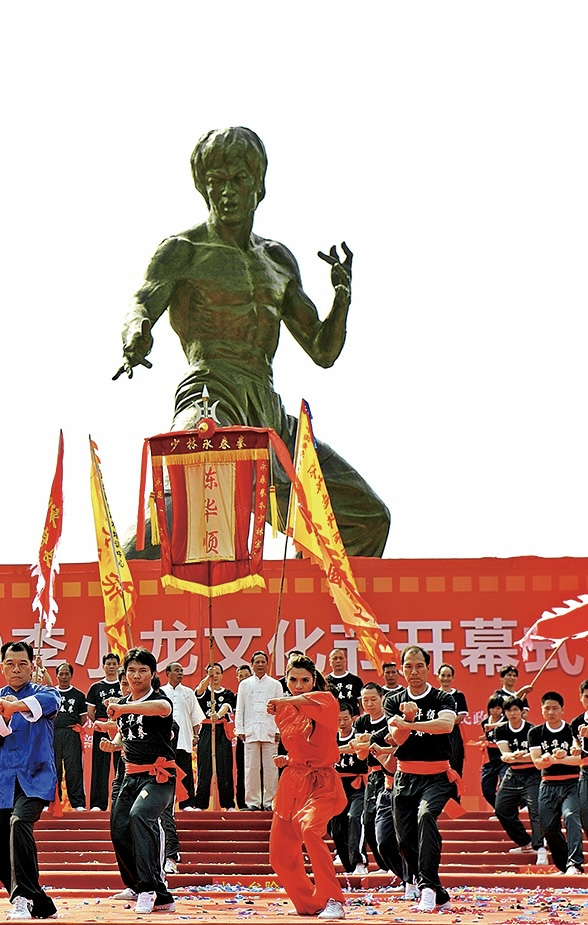Capital of kung fu waiting to be discovered
When it comes to kung fu, there is one name that looms large above all others, and nearly a half a century after his death, Bruce Lee's influence as a martial artist, an action star, and a cultural icon remains just as powerful across the globe as it did in his heyday. And though he may be more commonly associated with Hong Kong, there is another city that has equally deep familial and cultural ties to the man and the craft that he dedicated his life to.
Foshan, a city in South China's Guangdong province, is not only Lee's ancestral home, but is synonymous with the study of martial arts, and can even claim the title of the City of Kung Fu.
Other than Lee, Foshan boasts figures notable in their own right, such as Wong Fei-hung and Ip Man, who was born in Luocun, Foshan in 1893 and went on to teach Bruce Lee in the art of Wing Chun. Ip's own legacy has gained wider recognition in recent years due to a series of widely popular films about his life, starring Guangzhou-born action star Donnie Yen.
But the city not only relies on its rich legacy of kung fu — in recent years the local government has invested heavily in the martial arts industry, and done a great deal to cultivate and foster its heritage in this area for a greater tourist experience.

Martial artists practice in front of a statue of Bruce Lee. CHINA DAILY
With more than 500 martial arts clubs, including more than 50 styles of combat, and the construction of Bruce Lee Paradise, an entertainment park that also houses an 18.8-meter-high statue of Lee, the city's martial arts legacy remains strong and has attracted fans and practitioners from far and wide. And those who decide to journey to this mecca of kung fu will be justly rewarded, as Foshan's culture of martial arts and the legacy of Lee are not the only jewel in the city's crown.
The area's natural landscape has much to offer including Xiqiao Mountain, one of the four famous mountains in Guangdong, and delving deeper into the history and heritage of Foshan can offer a fruitful experience that covers all facets of Chinese culture, including some of the most iconic aspects that many outside the country would deem to be the epitome of "Chinese".
The most prominent of these would be the world-famous lion dancing. Performed around the world on festive occasions, the Guangdong style of lion dancing uses kung fu as a basis for its movements and postures and was born in Foshan alongside another renowned art form, Cantonese Opera.
Originating in the 16th century, Cantonese Opera, also known as Lingnan Opera, is famous for the unique characteristics of its costumes and singing, and was included in the first batch of intangible cultural heritages on the National Intangible Cultural Heritage List in 2006, and on the World Intangible Cultural Heritage List by the United Nations in 2009.
Though the gaze of tourists is often drawn toward China's vast metropolis such as Beijing, Shanghai and Hong Kong, Foshan, which is also a world capital of gastronomy, is a vitally important cradle of the country's culture and history, and is an indispensable stop for any traveler looking to learn more about China's fascinating heritage.



 Print
Print Mail
Mail

